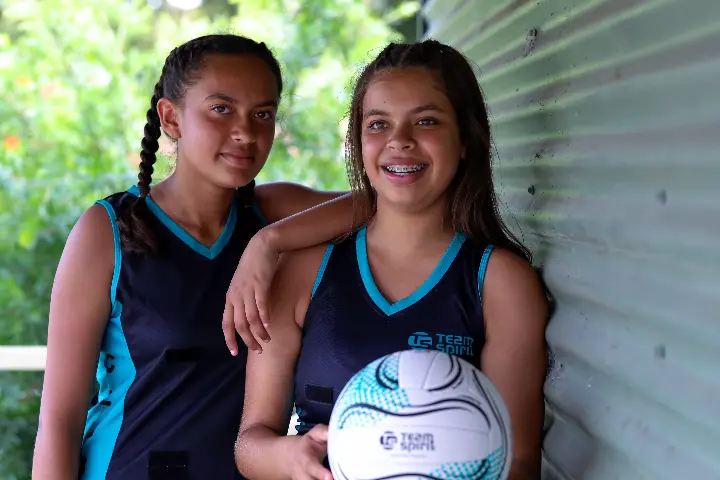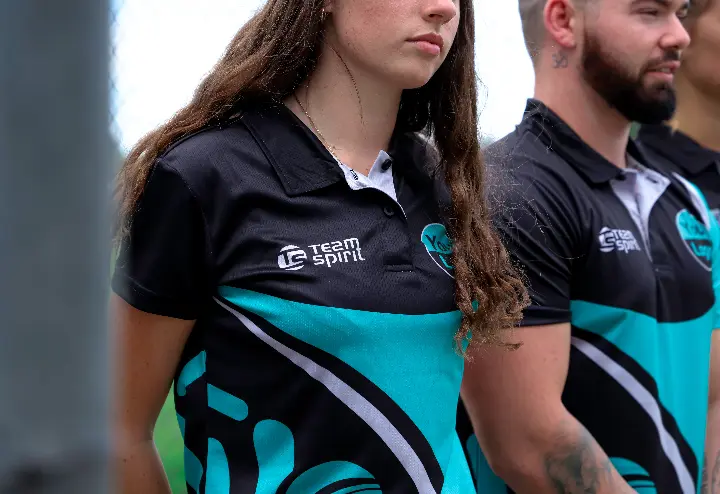Every champion team has one thing in common, a winning mindset. Talent and hard work matter, but it’s the mental game that separates good teams from great ones.
That’s where sports psychology comes in. It helps athletes and teams strengthen focus, confidence, and resilience, ensuring they perform their best when it matters most.
In this article, we’ll explore what sports psychology is, how it works, and how it can help teams like yours build pride, unity, and unstoppable motivation, both on and off the field.
Key Takeaways
- Sports psychology focuses on improving mental resilience, confidence, and teamwork.
- It benefits athletes at all levels, from professionals to local community clubs.
- Team identity and consistent sportswear enhance belonging and motivation.
- Applying simple mindset habits in training can dramatically boost performance.
- Strong minds build strong teams and strong teams wear their pride with confidence.
What Is Sports Psychology?

Sports psychology is the study of how thoughts, emotions, and behaviours influence athletic performance. It focuses on helping athletes harness their mental strength just as they train their physical abilities.
In simple terms, it’s about understanding how the mind affects movement, and how to use that knowledge to perform better under pressure.
A sports psychologist might help an athlete:
- Build confidence after an injury
- Stay calm during high-pressure moments
- Set achievable goals and visualise success
- Strengthen communication and trust within a team
It’s not just for elite professionals. Every athlete, from grassroots to national level, can benefit from mental training.
A Brief History: From Elite Focus to Everyday Teams
Sports psychology first took shape in the early 20th century when coaches and researchers began studying how focus and confidence influenced results.
Over time, it evolved into a formal discipline that blends psychology, neuroscience, and coaching. Today, its principles are used by professional athletes, weekend players, and entire clubs that recognise success starts in the mind.
In Australia, the field is supported by the Australian Institute of Sport, which emphasises mental health, motivation, and resilience as key pillars of performance.
Why Sports Psychology Matters for Teams

In team sports, success depends on much more than individual skill. Cohesion, trust, and communication are just as important as technique.
Sports psychology helps teams perform together, not just alongside each other.
Here’s how it makes a difference:
- Boosts confidence and focus: Players learn to control nerves, think clearly, and trust their preparation.
- Builds resilience: Every loss becomes a lesson, every setback a chance to grow.
- Strengthens communication: When teammates understand each other’s emotions and pressure points, teamwork flows naturally.
- Enhances motivation and unity: Shared goals and consistent mental routines keep the entire team aligned.
The Australian Sports Commission identifies three key domains of sports psychology:
- Performance enhancement: improving focus and confidence under pressure.
- Injury recovery and restoration: supporting athletes mentally through setbacks.
- Mental health and well-being: building sustainable, long-term motivation.
When teams invest in mindset training, they’re not just improving performance, they’re building mental endurance for the entire season.
Core Techniques in Sports Psychology
Sports psychologists use a variety of evidence-based techniques to boost performance. Even without a psychologist, teams can apply many of these principles in everyday training.
1. Goal Setting
Setting clear, achievable goals helps teams stay focused and motivated. It’s about balancing ambition with realism, breaking big dreams into daily actions.
2. Visualisation
Before a big match, athletes mentally rehearse success, from the feel of the ball to the roar of the crowd. This primes the brain for performance and builds confidence.
3. Positive Self-Talk
Replacing doubt with encouragement transforms pressure into opportunity. “We’ve got this” is more powerful than “Don’t mess up.”
4. Mindfulness and Focus
Techniques like deep breathing, meditation, and pre-game routines help athletes stay calm, present, and adaptable.
5. Team Culture and Rituals
Shared rituals, a chant, handshake, or song, reinforce belonging and trust. They remind everyone they’re part of something bigger.
When practised consistently, these habits shape not only performance but also team identity.
Read more: Team Culture in Sports: Why It Matters and How to Build It
Building Team Identity: The Psychology of Uniforms

One of the most overlooked elements of team psychology is visual identity, the way a team presents itself.
From local clubs to professional squads, uniforms, colours, and logos create powerful psychological cues.
Read more: The Psychology of Colours in Sports Design: How Colours Influence Performance
When players wear matching, custom-designed gear, they feel united. The uniform becomes a symbol of shared purpose, pride, and professionalism.
That connection boosts confidence and team cohesion, both key outcomes of sports psychology.
At Team Spirit Sports, we believe pride starts with identity.
Our custom sportswear helps teams across Australia look sharp, feel united, and perform with confidence, on and off the field.
Applying Sports Psychology in Everyday Training
You don’t need a degree in psychology to start applying these principles. Coaches and captains can integrate mental training into regular sessions:
- Start with a team focus session: set weekly goals and affirm shared values.
- Include visualisation in warm-ups: have players picture themselves succeeding.
- Use post-match reflections: talk through what went well mentally, not just physically.
- Establish pre-game rituals: music, breathing, or chants to build unity.
- Encourage accountability: each player tracks their mindset progress.
These small, consistent habits create lasting change, turning a group of players into a connected, confident team.
Pride, Performance, and the Power of Mindset
Great teams aren’t just built on skill, they’re built on connection, confidence, and pride.
Sports psychology gives athletes the tools to stay focused, resilient, and united no matter what the scoreboard says.
At Team Spirit Sports, we share that same philosophy. From custom jerseys and shorts to training gear and off-field apparel, every piece we create is designed to strengthen your team’s identity and pride.
Because when your team looks connected, they feel connected, and that’s where true performance begins.
Visit our sportswear collection to find the perfect fit for your team.
FAQs
1. Is sports psychology only for professional athletes?
Not at all. The same principles help local clubs, school teams, and recreational players build focus, confidence, and teamwork.
2. How often should teams practise mental training?
Ideally, mindset exercises should be built into every training week, even five minutes can make a difference when done consistently.
3. Can uniforms really affect performance?
Yes. Wearing matching, well-designed gear enhances team identity, pride, and motivation, all of which influence how players perform and communicate.
4. What’s one easy way to introduce sports psychology to a team?
Start with goal-setting and pre-game visualisation. These simple exercises can quickly improve focus and confidence.